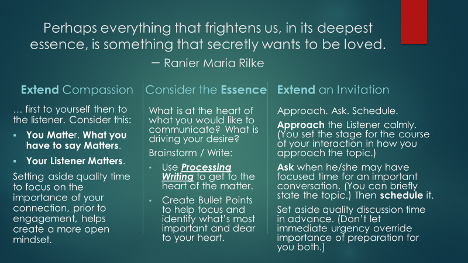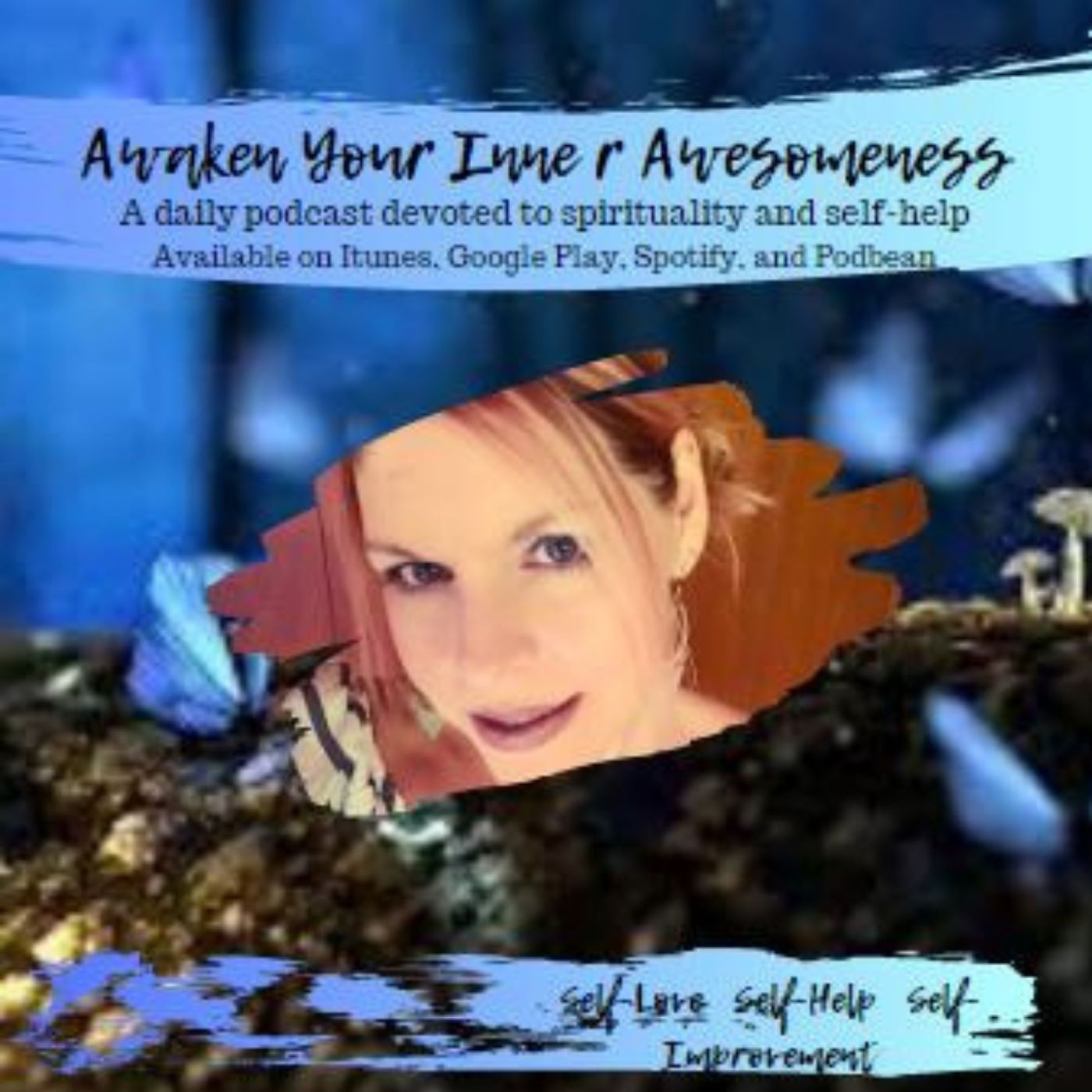Courageous Conversations
“We build bridges, instead of walls, when we muster up the courage to speak authentically and listen open-heartedly.” Dr. Jeanne

I fiercely believe in the power of Courageous Conversations to transform lives and heal relationships. I have witnessed time and time again the transformative power that speaking your truth, and having it be fully listened to, has on deepening trust and fostering greater intimacy. Does it take courage? You bet. Is it worth it? Absolutely. You can’t heal what you don’t talk about.
Speaking your truth, and listening to the truth of another, can be particularly challenging during heightened states of emotional distress. When anxiety is already running high we tend to react rather than respond to points of view that we find distressing.
Delving into relational dialog during a disagreement isn’t easy. What typically gets in the way? Fear. Frequently we aren’t even aware of the fears lurking in the deeper recesses of our unconscious. Putting things on the table can help provide a window into underlying woundings that may be driving unwanted behavior, passive-aggressive comments, and emotional withdrawal. Here is a list of some of the most frequent fears that are uncovered during client sessions. Which sound familiar to you?
- Fear of Pain – of hurting someone’s feelings, or the pain you might experience in sharing.
- Fear of Rejection – rejection of ideas, points of view.
- Fear of Criticism – both ideological and personal.
- Fear of Dismissal – that your ideas will be dismissed or laughed at.
- Fear of Reprisal – that what you have shared will be thrown back at you in a future argument.
- Fear of Judgement – this is particularly true when it comes to sharing something that has happened to you in your past, or something that you carry shame around.
- Fear of Facing a Difficult Truth or Thought, or Sharing something that is difficult to acknowledge, like a personal “secret” or realization, like, “I’m not feeling like I’m in love with you, and that scares me.” Or, “I’m not sure I want to be married any longer.” Or, “I’m attracted to someone else.” Or a big one, “I’ve been having an affair.”
To hear someone close to you express an opinion or belief that fundamentally differs from your own, can trigger fear of disconnection or loss of control. While this is especially true for intimate / family relationship, it also holds true for our community, country, and the world at large. If we cannot speak our truth to the people we love, and sometimes disagree with, then how can we ever hold hope for our organizations and connections with other countries?
As we practice the art of speaking and listening with greater reverence, kindness, and respect, not only are we serving as role models within our intimate relationships and families, the Courageous Conversations we mindfully engage in, ripple out into the world at-large.
There are 3 stages to effectively engage in a Courageous Conversation:
- Preparation
- Engagement
- Follow-up
Today’s topic is Step One: Preparation.
 Effective preparation calms down our inner defenses, which in turn impacts our approach. We each have an internal defense system designed to protect us from the threat of attack, either physical or emotional. When we perceive someone is coming at us, it sets into motion our fight, flight, or freeze response. What this looks like in a discussion is the tendency to fight, that is defend our position; flee, withdraw from the threat of any perceived conflict; or freeze, we become immobilized. When we freeze, our ability to think or reason shuts off (think of a deer in the headlights unable to move). When we approach someone in a heightened state of distress it activates their inner defense system.
Effective preparation calms down our inner defenses, which in turn impacts our approach. We each have an internal defense system designed to protect us from the threat of attack, either physical or emotional. When we perceive someone is coming at us, it sets into motion our fight, flight, or freeze response. What this looks like in a discussion is the tendency to fight, that is defend our position; flee, withdraw from the threat of any perceived conflict; or freeze, we become immobilized. When we freeze, our ability to think or reason shuts off (think of a deer in the headlights unable to move). When we approach someone in a heightened state of distress it activates their inner defense system.
Calming our own inner defense system in advance of a conversation, lowers the possibility of tripping the alarm system of the person we will be speaking with. This allows for the possibility of a more team-oriented approach to problem-solving.
In my office I often use the following example in talking with couples: “Let’s say the problem you are facing is this pillow. You can either put the pillow between you, which essentially results in setting each of you up as an “opponent” trying to win (or defend your position). When you put the pillow (problem) out in front of you, the problem becomes the “opponent” with the two of you working together as a team to try and resolve. Essentially, either the problem becomes the adversary, or your partner does. Which do you prefer?”
Your State of Mind is CRITICAL to Approach. Your Approach is CRITICAL for setting the stage for a calmer and more productive conversation. The likelihood of success engagement is directly proportional to the quality of the effort you puinto preparing for it. So, let’s take a look at how to best prepare.
- Extend
- Consider the Essence of what you want to discuss.
Learn More About Process Writing - Extend an Invitation to the Listener.
Here is the essence of the three E’s:

It is my hope that practicing the three E’s, will give you more confidence to engage in meaningful Courageous Conversations. The Next Article will focus on Step 2: ENGAGEMENT.
If you have any questions, comments, or feedback, feel free to reach out.
Until then … Live Passionately, Lead Respectfully, Love Courageously!
Dr. J



